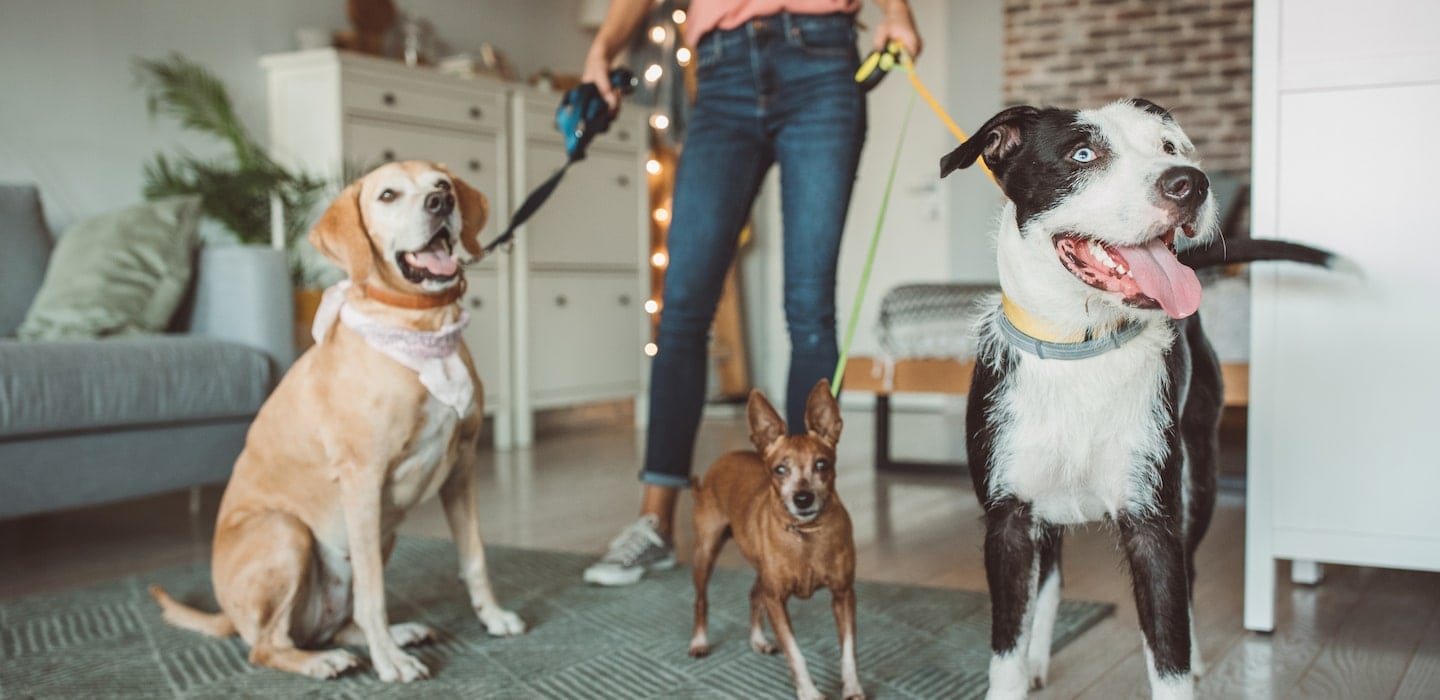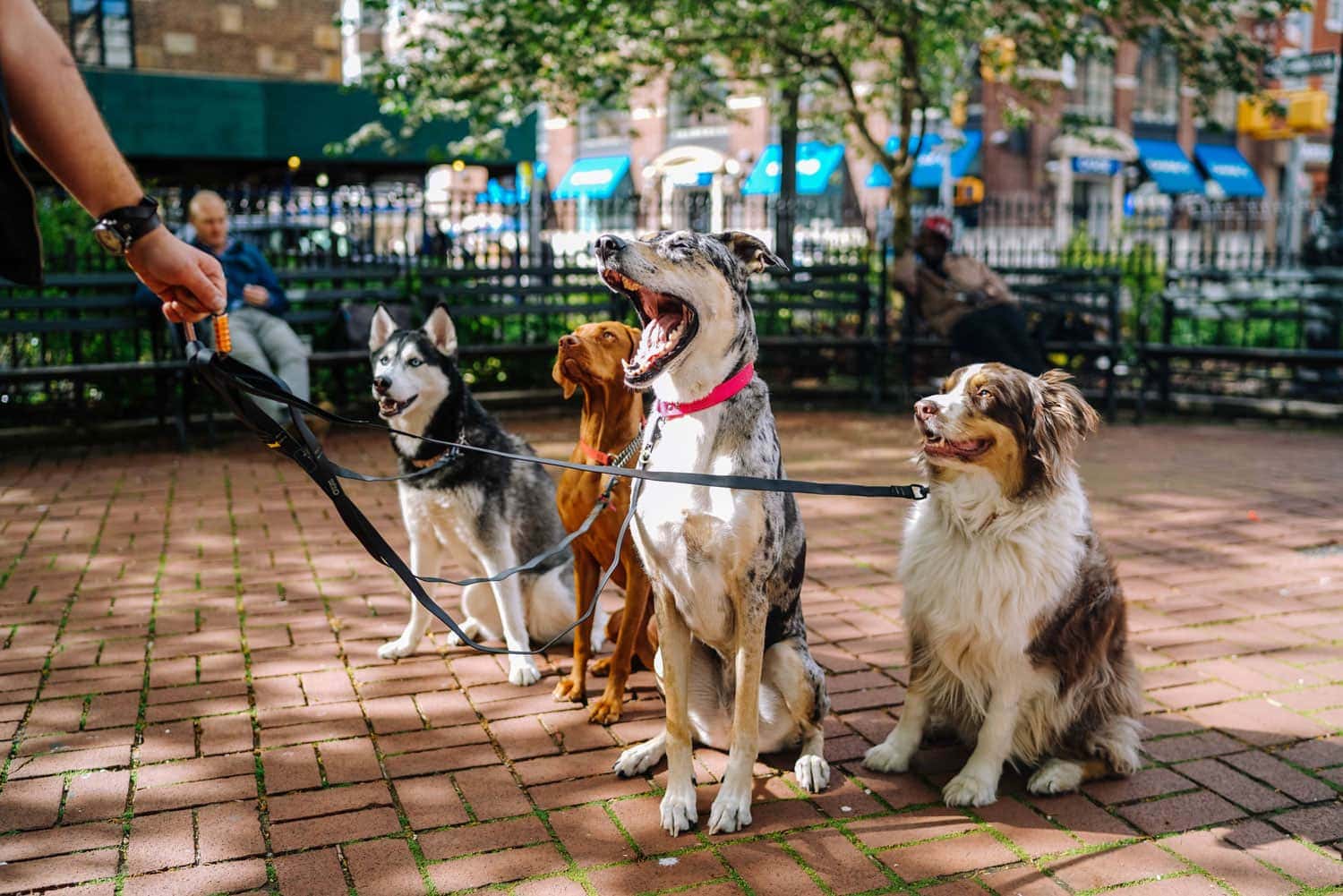Who doesn’t love dogs? They’re called “man’s best friend” for a reason, as dogs have been companions to humans for millennia. Whether as pets or in official guide or therapy roles, dogs are a big part of our lives. And we return the favor by caring for them, making sure they’ve got food, protection, and of course, play time. But dog care, like child care, is hard work! Sometimes, people need to call in professional help.
That’s where you, an aspiring dog walker or pet sitter, comes in.
Dog walking, pet sitting, dog training, and other pet care work in general, is a fantastic industry for anyone that loves animals and wants to spend time with them while also making great money. If you’re considering starting up or expanding your dog walking business, you need to look into licensing and certification to operate legitimately.
This guide will walk you through what you need to know about having a dog walking certification. Let’s jump in.
Do you need a license or certification to be a dog walker?
The short answer is that it depends on where you’re dog walking:
- If you live in a smaller town or suburb, you may not need a dog walking license.
- If you live in a larger city or metropolitan area, you probably need a license.
The longer answer begins with the fact that there aren’t many federal or state guidelines about dog walking or pet care businesses, aside from general laws about animal cruelty and abuse. But there are local laws and protocols you need to be aware of in individual cities, townships, municipalities, etc if you want to start your own dog walking service.
In smaller towns, suburbs, and rural areas, there are often few restrictions and regulations on business practices, especially for relatively new, small, or niche industries like dog walking. However, in many larger and more densely populated cities in the US, there are stricter regulations in place about who can do this kind of work and how it can be done.
So, let’s take a look at relevant requirements in some high profile cities.
Notable local licensing and dog walking certification policies
Here are some of the policies on dog walking and pet sitting license and certification in big cities across the US:
New York, New York – In the big apple, you need to have a Small Animal Boarding Establishment Permit in order to walk dogs professionally. This also applies to any kind of pet care, such as grooming, training, and sitting. To get one, you need to:
- Pay a new application fee of $70-$105 and an annually recurring $70 renewal fee, as well as all outstanding Health Code Violations fines
- Prove you have workers’ compensation and disability insurance
- Be authorized to collect sales tax via Sales Tax Vendor Registration
- Get your Animal Care and Handling Certification
Chicago, Illinois – The Windy City’s requirements for professional dog walkers include an Animal Care License. That same license also applies to large-scale businesses such as veterinarians and zoos. You need to:
- Pay a $275 fee, per location, for a two-year term
- Comply with all regulations specific to your zoning
- Register a business license from Business Affairs and Consumer Protection (BACP)
San Francisco, California – In the City by the Bay, a certified dog walker needs to have a dog walking permit to be able to walk four or more dogs at once (but no more than eight). Unlike in New York and Chicago, the permit is specifically for dog walking. But overall certification also involves broader animal safety requirements, so you need to:
- Pay an initial fee of $285 and an annual renewal fee of $114
- License your business
- Prove completion of relevant training or certification programs or have three years’ relevant experience
- Insure your business with at least $1 million in general liability and insure all vehicles that transport the dogs
- Comply with Animal Care & Control guidelines for leash length, number of dogs, etc.
Across these examples, you see a few themes common that apply to other cities’ local policies. They all cost money! And the certifications can be wide-ranging, applying to all kinds of animal-related businesses of any size (as in New York and Chicago). Or, they sometimes relate very specifically to dog walking itself (as in San Francisco).
In any case, no matter where you are, you should research the local laws to figure out what you need to do to start (or keep) professionally dog walking there.
Choose where to start your business
The above descriptions might make it sound like it’s easier to start up a dog walking service in a less regulated area like a smaller town. However, the flip side is that major cities’ larger, more densely packed, and busier populations make for more opportunities for volume and efficiency when dog walking:
- More people means more dogs to be walked
- People living closer together makes it easier to walk multiple dogs at once
- Busier schedules in busier cities mean owners have less time to walk their dogs
So, whether you live in one already or not, a city is a great place to think about starting your dog walking business.
Regardless of location, one consistency is that all cities require walking pet professionals to register or insure their business in order to operate officially. That’s not just a city thing, either: it applies in most locations across the US.
Wherever you are, in order to operate legitimately, you’ll need to set up an official business.
Unleash your dog walking business
In practice, starting a dog walking business can be as simple as registering it at the federal and state levels. But to make sure you’re setting yourself up for long-term success, it’s important to cover all your bases:
- Register your business
- Establish separate business finances
- Build an online presence
- Protect your business with insurance
For that last part, we’re here to help.
Thimble brings on-demand, high-quality insurance coverage to pet professionals that helps to protect themselves and their business. If you consider yourself a professional dog walker or pet sitter, it’s essential that you are protected with dog walking certification and coverage.
Our pet sitting policy covers dog walking, as well as grooming, sitting, and training. It consists of general liability and professional liability coverage to protect you from both general risks and work-specific accidents or errors, including:
- Third-party bodily injury
- Third-party property damage
- Advertising and personal injury
- Errors and omissions that result in the financial loss of a client
Best of all, our coverage is easy to sign up for and flexible to suit your needs as a professional dog walker. You can purchase plans by the hour, day, or month, all in just 60 seconds.
Making sure you have the right coverage is like giving yourself the longest leash possible. It gives you the freedom and flexibility to grow your dog walking business into a dog walking empire (where you’re top dog).








